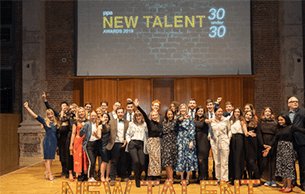As yet another major shake-up appears on the horizon of the British political landscape, leadership and the qualities required to reach the top have understandably shifted to the forefront of the public consciousness. In the world of business, we ...
Explore In-Depth CEO Insights and Articles
Explore our extensive collection of articles featuring the latest insights, trends, and success stories from top business leaders. Stay informed with expert analysis and in-depth content that covers a wide range of topics in leadership and innovation. Browse now to stay ahead in the business world.

Browse Our Latest Articles
Explore the latest articles, featuring expert insights, groundbreaking innovations, and success stories from visionary business leaders. From leadership strategies to industry trends, our articles deliver the knowledge you need to stay informed and inspired. Dive in and stay ahead in the ever-evolving world of business leadership.
Following a number of new business client wins with a CRO* focus, digital marketing agency Mediablaze has appointed Sarah Batters in the newly created role of Growth Marketing Director, underscoring the agency’s ongoing commitment to bringing conc...
Maplewave CEO, Matthew Brannon, sat down with Tech & Beer to discuss how advances in technology will affect the future of retail.
By Dr Michael McCann MB BCh MA DIH MD MFOM, occupational health expert and speaker at iCAAD London 2019; Europe’s leading conference on Behavioural, mental and Emotional Health.
Award-winning business growth coach Gary Keating is offering a free seminar at the end of May to help business owners in the South-West learn how to increase the value of their company.
Established in 2010, Absolute Communications Group is an integrated communications agency based in Dubai, the United Arab Emirates. Named 2019’s PR Agency of the Year by CEO Monthly Magazine, we took some time to profile the firm and find out more...
Chipside, a specialist provider of digital parking and permitting services, has appointed Leighton Ponting as its new Business Development Manager. With more than three decades of experience in business sales and management, and 15 years involveme...
In a spate of new hires, Gary Barnes comes on board as Ably’s new CCO.
Data Economy’s founder and editor-in-chief João Marques Lima has been awarded the PPA 30 Under 30 New Talent media award for his work at Data Economy, the leading source for business and finance news and opinion within the IT infrastructure sector.
Dynama, an Allocate company and a global supplier of workforce and resource management solutions, today announced the appointment of Andrew Lloyd as Managing Director.
Since 2010, TheTableau.com has been an international business management company specializing in business turnarounds, supply chain management, and lean solutions. Just months ago, TheTableau’s CEO and acclaimed business innovator, Irene Jeremic, ...
On the 21st of March, Steve Rawlingson, CEO of Newcastle-based, Samuel Knight International will be sleeping overnight at St James Park for the annual CEO Sleepout. The initiative will see several such events take place across the country to raise...












